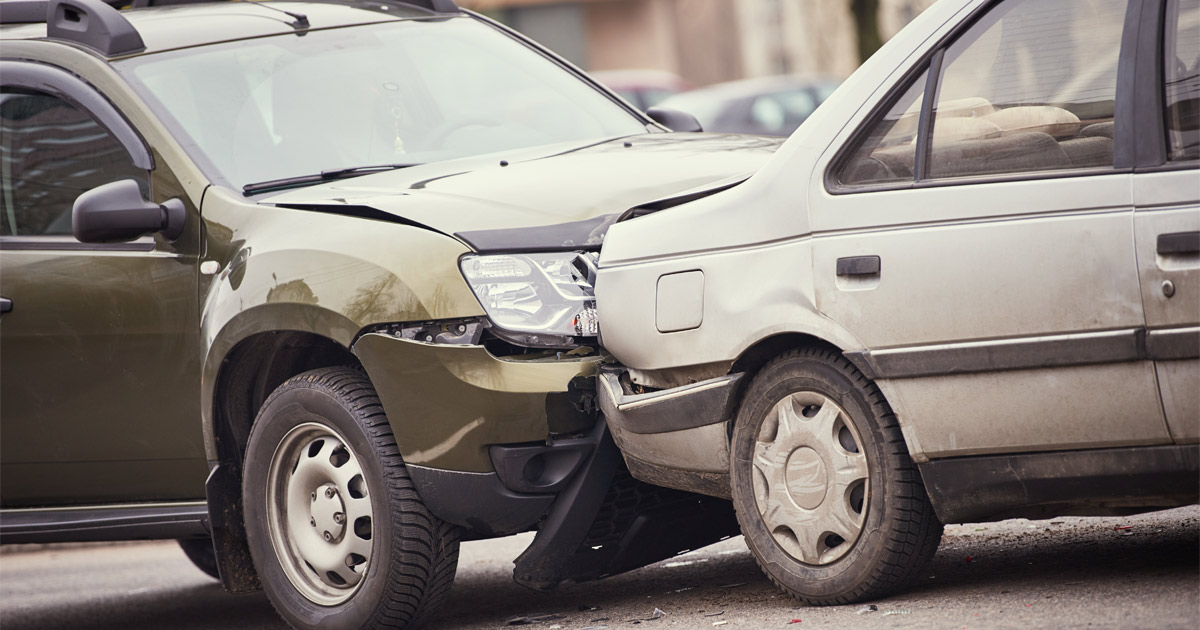Why Is Tailgating So Dangerous?
January 12, 2022

One of the most annoying things that happen when driving is when other drivers tailgate. Tailgating is when a driver who is behind you is riding way too close to the rear of your vehicle. It is annoying because it usually causes anxiety and fear that they will cause a car accident. All that it takes is if you must stop quickly because of a sudden emergency, and the tailgating car will smash into the back of you. Being involved in a rear-end accident can cause serious personal injury. Even a rear-end collision that is not too violent can still cause the people in the front vehicle to suffer serious whiplash-type injuries and be thrown around inside their car. These injuries can happen even if you are wearing your seat belt.
Tailgating Statistics
In the United States, tailgating is a larger problem than most people think. Although statistics are hard to come by for this type of accident specifically, there are certain kinds of accidents that can be directly linked to tailgating and therefore help bring a light to this growing issue. A recent study has indicated that approximately one-third of all accidents on the roads and highways of the United States can be directly or indirectly attributed to a reckless driver who was tailgating. Over the past five years, this means that over four million car accidents occurred alone from someone following too closely.
What Is the Technical Definition of Tailgating?
The definition of tailgating might be different for different people. Since tailgating is a dangerous practice, knowing what tailgating actually looks like should help us combat this issue and make our roads safer for everyone. The definition is a little more than just following too closely and should have a specific way to tell what is too close and what is a safe distance. According to most state statutes, tailgating is defined as following too closely when you cannot see the taillights of the car ahead. If you cannot see their taillights, you are way too close to the vehicle in front of you. This definition may be simple, but tailgating is a little more complicated than that. For example, one must also look at speed and braking abilities while tailgating because it could potentially lead to other issues such as road rage if another car tries to get around you and you refuse to move.
But even if you can just barely see the taillights of the vehicle in front of you, it is still not safe, according to safe driving experts. The rule is to maintain at least a three-second following distance, giving you time to react and avoid potentially dangerous situations. This means that if the vehicle in front of you stops suddenly, you have at least three seconds to slam on your brakes to stop. Depending on your vehicle weight and the speed at which you are traveling, this three seconds may be increased. Also, you can judge it by car lengths. The standard rule is that you should be at least four to five car lengths behind the vehicle in front of you. This would give you enough distance to safely react to almost all emergency situations.
Tailgating and Road Rage
The tailgating problem is a growing one that needs to be stopped as soon as possible. The people who tailgate tend to think that they are always right and the other person just messed up, but tailgaters have been known to speed, drive recklessly, drive under the influence of drugs or alcohol, try intimidating or bullying their way out of a tough situation by following too closely, and not keeping a close watch on traffic conditions. Tailgating can lead to road rage, which has ended in many cases with extreme violence toward the tailgater, including intentionally caused collisions and even shootings.
Philadelphia Car Accident Lawyers at Nerenberg Law Associates, P.C. Fight for the Rights of Injured People
Being seriously injured by a negligent and reckless driver can be a horrible experience and can turn your life upside down. If you or a loved one has been involved in an accident caused by an irresponsible driver, reach out to the Philadelphia car accident lawyers at Nerenberg Law Associates, P.C. Our legal team will help you understand your rights and help you secure the compensation for which you are entitled. Call us today at 215-569-9100 or contact us online for a free consultation. Located in Philadelphia, we serve clients throughout Pennsylvania and New Jersey.

